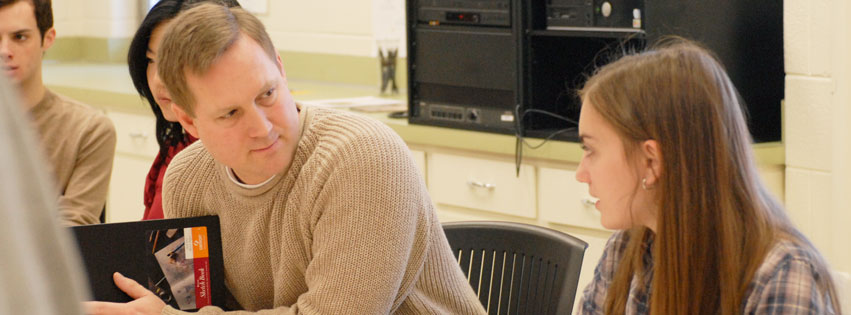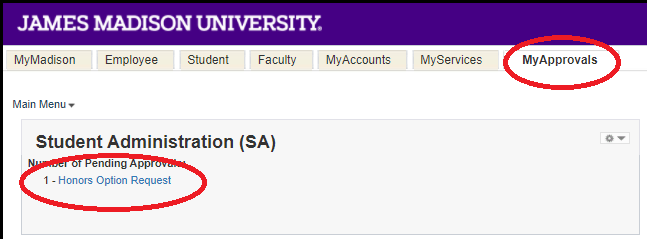
An Honors Option allows Honors students to earn Honors credit for a non-Honors course at the 200-level or above. It consists of an agreement between an Honors student and a professor that the student will complete an additional or enhanced assignment, under the professor's supervision. The Honors College affirms that individual faculty members have the right to decline a request to contract their class for Honors Option credit for any reason.
Designing an Honors Option
All Honors Options should extend and/or supplement the existing course content. Option agreements should consider the following goals:
- Allow the student to pursue a particular topic of interest in significant depth.
- Further knowledge/skills in the course's subject area.
- Allow student to go deeper/think more critically about course topics.
- Enable investigation of potential capstone project topics.
- Further student progress towards developing an established capstone project.
Examples of previous Honors Option projects can be viewed here.
To be eligible for an Honors Option, the student must be in good standing with the Honors College and have completed at least 30 credits of college coursework. Honors Option classes must be taken for a letter grade. The student must maintain regular independent meetings with the course’s faculty member, at least four times within the semester. All work associated with the Honors Option must be submitted to the faculty member and to the Honors College by the last day of finals week (unless the faculty member establishes an earlier deadline).
Approving an Option Proposal
Faculty who agree to supervise an Honors Option student will need to approve the proposal in MyMadison under the "My Approvals" tab once the student submits it. It is very important to approve or deny this proposal promptly, so it can be registered to the student's transcript and tracked in our system.
Please see the following images for guidance in navigating the approval process:


Grading an Honors Option
Faculty must report satisfactory or unsatisfactory completion of the Honors Option during the grading process at the end of the semester, after grades for the class are entered. If a faculty member fails to officially report completion of the Honors Option by the end of the semester, the Honors Option designation will be removed from the course.
MyMadison tutorial for entering an Honors Option grade
